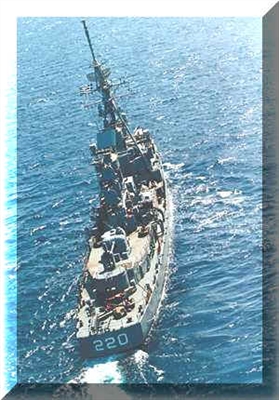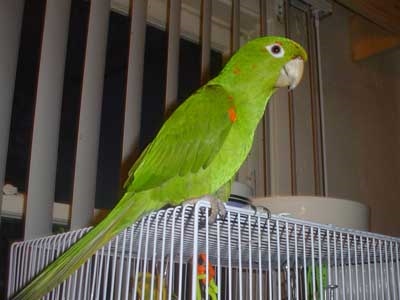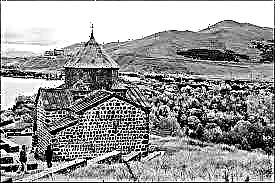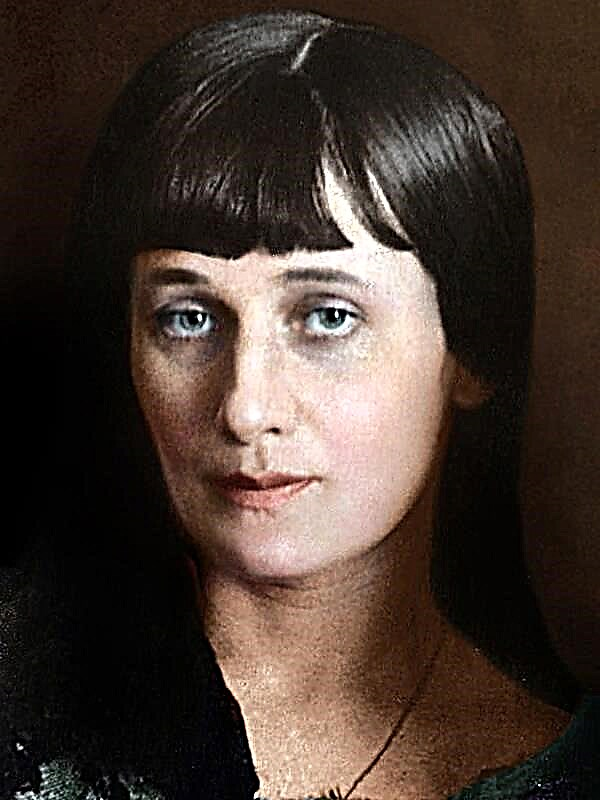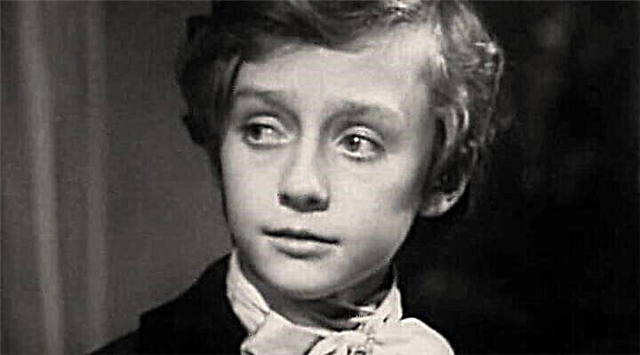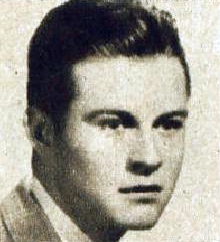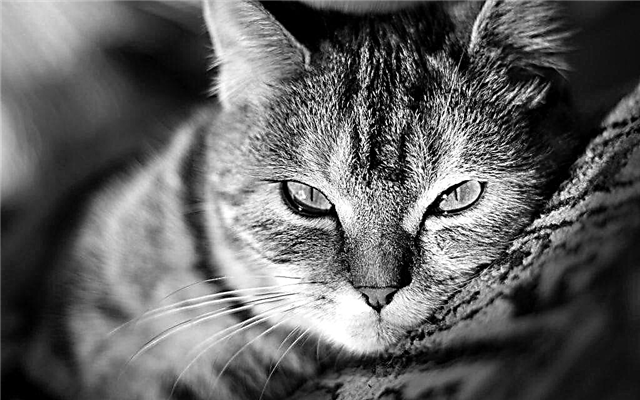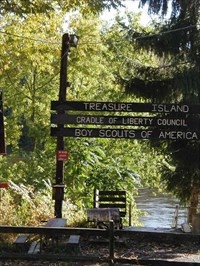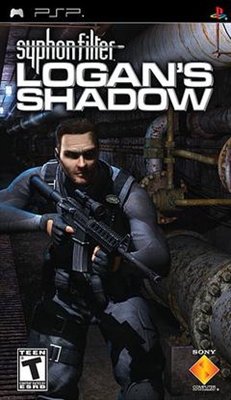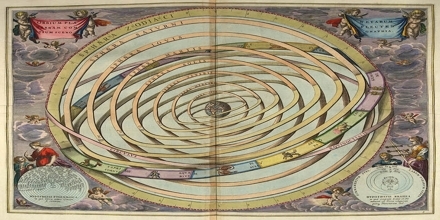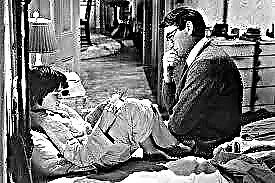All gathered this terrible corps - the thirteenth, cancer. Persecuted and persecutors, silent and vigorous, hard workers and money-grubbers - he gathered and depersonalized everyone, they are now only seriously ill, torn out of the usual environment, rejected and rejected everything familiar and dear. Now they have neither another house nor another life. They come here with pain, with doubt - cancer or not, to live or die? However, nobody thinks about death, it is not. Ephraim, with a bandaged neck, walks and annoys “Our Sybirny case,” but he does not think about death, despite the fact that the bandages rise higher and higher, and the doctors keep silent more and more - he does not want to believe in death and does not believe . He is an old-timer, for the first time he let go of his illness, and now he will let go. Rusanov Nikolay Pavlovich - a responsible worker who dreams of a well-deserved personal pension. I came here by accident, if I really need to go to a hospital, then not to this one, where there are such barbaric conditions (neither to you a separate ward, nor to specialists and care appropriate to his situation). Yes, and the people crept up in the ward, one Ogloed what is worth - an exile, a snapper and a simulator.
But Kostoglotov (the same insightful Rusanov called him Ogloed) does not even consider himself sick. Twelve days ago, he crawled into the clinic not sick - dying, and now he even has some kind of “vague-pleasant” dreams, and much to visit is a clear sign of recovery. It couldn’t be otherwise, he had already suffered so much: he fought, then sat, didn’t graduate from the institute (and now thirty-four, late), they didn’t take him to the officers, he was banished forever, and even now - cancer. You can’t find a more stubborn, corrosive patient: he is ill professionally (he studied the book of pathanatomy), he answers all questions from experts, he found a doctor Maslennikov, who treats miracle medicine with chaga. And he’s ready to go in search of himself, to be treated, like any living thing is treated, but he can’t go to Russia, where amazing trees grow - birch trees ...
A wonderful way to recover with the help of tea from chaga (birch mushroom) revived and interested all cancer patients who were tired and lost faith. But Oleg Kostoglotov is not such a person as to disclose all his secrets to this free one, but not to be taught the “wisdom of life sacrifices”, not knowing how to throw off all unnecessary, superfluous and be treated ...
Believing in all popular medicines (here Chaga, and Issyk-Kul root - aconitum), Oleg Kostoglotov is very wary of any “scientific” interference in his body, which annoys the attending doctors Vera Kornilievna Gangart and Lyudmila Afanasyevna Dontsova. With the last Ogloed, everything breaks into a frank conversation, but Lyudmila Afanasyevna, “yielding in the small” (canceling one session of radiation therapy), immediately prescribes a “small” injection of synestrol, a medicine that kills, as Oleg later found out, the only joy in the life that remained of him, after fourteen years of deprivation, which he experienced every time he met with Vega (Vera Gangart). Does the doctor have the right to heal the patient at all costs? Does the patient need and wants to survive at all costs? Oleg Kostoglotov cannot discuss this with Vera Gangart with all his will. Vega's blind faith in science runs into Oleg’s confidence in the forces of nature, man, in his own strength. And both of them make concessions: Vera Kornilyevna asks, and Oleg pours out the root infusion, agrees to a blood transfusion, an injection that destroys the seemingly last joy Oleg has on earth. The joy of loving and being loved.
And Vega accepts this sacrifice: self-denial is so much in the nature of Vera Gangart that she cannot imagine any other life. Having gone through fourteen deserts of loneliness in the name of her only love, which began very early and ended tragically, after fourteen years of madness for the boy, who called her Vega and who died in the war, she only now completely became convinced that she was right, it was today that a new, complete meaning acquired her many years of loyalty. Now, when a man is met who endured, like her, on her shoulders the years of deprivation and loneliness, like her, not bent under this weight and therefore so close, dear, understanding and understandable, it is worth living for such a meeting!
A lot of people have to go through and change their minds before coming to such an understanding of life, not everyone is given this. So Zoenka, the little bee-Zoenka, no matter how much she likes Kostoglotov, will not even sacrifice her nurse's place, and even more so she will try to save herself from a person with whom you can secretly kiss everyone in the hallway deadlock, but you can not create real family happiness ( with children, embroidery floss, pads and many more, many other pleasures available to others). Equal in height with Vera Kornilyevna, Zoya is much denser, and therefore it seems larger, more cunning. And in their relationship with Oleg there is no that fragility-understatement that reigns between Kostoglotov and Gangart. As a future doctor, Zoya (a student at the medical institute) perfectly understands the "doom" of the patient Kostoglotov. It was she who opened his eyes to the secret of the new injection prescribed by Dontsova. And again, like a ripple of veins - is it worth living after this? Is it worth it? ..
And Lyudmila Afanasyevna herself is no longer convinced of the impeccability of the scientific approach. Once, about fifteen to twenty years ago, radiation therapy that saved so many lives seemed to be a universal method, just a find for oncologists. And only now, the last two years, patients, former patients of cancer clinics began to appear, with obvious changes in those places where especially strong doses of radiation were applied. And now Lyudmila Afanasyevna has to write a report on the topic "Radiation sickness" and sort through the cases of the return of "radiation" in her memory. Yes, and her own pain in the stomach, a symptom familiar to her as a diagnostic oncologist, suddenly shook her former confidence, determination and authority. Can I raise the question of the right of a doctor to treat? No, Kostoglotov is clearly wrong here, but even this reassures Lyudmila Afanasyevna a little. Depression is the condition Dontsova’s doctor is in, that’s what really begins to bring her, so inaccessible before, to her patients. “I did what I could. But I am wounded and fall too. ”
Rusanov’s tumor was already asleep, but this news brings him neither joy nor relief. His illness made me think too much, forced me to stop and look around. No, he does not doubt the correctness of his life, but after all, others may not understand or forgive (neither the anonymous letters, nor the signals that he simply had to send out of duty, owing to the duty of an honest citizen, finally). But not only others worried him (for example, Kostoglotov, but that he generally understands in his life: Ogloed, one word!), How many children of their own: how can they explain everything? One hope for Avieta’s daughter: she’s right, father’s pride, clever girl. The hardest thing is with his son Yurka: he is too trusting and naive, spineless. Pity him how to live something so spineless. This is very reminiscent of this to Rusanov, one of the conversations in the ward, even at the beginning of treatment. The main speaker was Ephraim: ceasing to itch, he read for a long time a little book slipped to him by Kostoglotov, thought for a long time, was silent, and then he said: “What is a person alive?” Contentment, specialty, homeland (native places), air, bread, water - many different assumptions rained down. And only Nikolai Pavlovich confidently minted: "People live by ideology and the public good." The moral of the book, written by Leo Tolstoy, turned out to be completely "not ours." Liu-bo-view ... Per kilometer carries a slobber! Ephraim thought, yearned, and left the chamber, not saying a word more. The incorrectness of the writer, whose name he had never heard before, seemed to him not so obvious. Efrem was discharged, and a day later they returned him from the station back, under the sheet. And very sadly everything became, continuing to live.
So who is not going to succumb to his illness, his grief, his fear - this is the Demo, absorbing everything, whatever the ward says. He survived a lot over his sixteen years: his father abandoned his mother (and Demo does not blame him, because she was "curled up"), his mother was not at all up to his son, and he, in spite of everything, tried to survive, to learn, to stand on his feet. The only joy left to the orphan is football. He suffered for it: a blow to the leg - and cancer. For what? Why? A boy with an overly adult face, heavy eyes, not talent (according to Vadim, a roommate), but very diligent, thoughtful. He reads (a lot and stupidly), engages (and has missed too much), dreams of going to college to create literature (because he loves the truth, his “public life is very kindling”). Everything is for him for the first time: both discussions about the meaning of life, and a new unusual view of religion (Aunt Stefa, who is not ashamed to cry), and her first bitter love (and that one is hospital, hopeless). But the desire to live so much in him that even the seized leg seems to be a successful solution: you will get more time to study (you don’t have to run to dances), you will receive disability benefits (enough for bread, but without sugar), and most importantly, you’ll be alive!
And the love of Demkin, Asya, struck him with an impeccable knowledge of his whole life. As if only this girl jumped into the clinic for five minutes from the rink, or from the dance floor, or from the movie, just to check, but here, behind the walls of the cancer, all her conviction remained. To whom she now is so, one-breasted, she will need it, it only came out of all her life experience: there is no need to live now! Perhaps the demo said why: he thought up something for a long treatment-doctrine (the life doctrine, as Kostoglotov instructed, is the only true doctrine), but it does not add up to words.
And all Asenkina’s swimwear that were not bought and bought were left behind, all of Rusanov’s profiles were unverified and unfinished, all of Efremov’s construction projects were incomplete. The whole "order of world things" has overturned. The first contraction with the disease crushed Dontsova like a frog. Doctor Oreshchenkov no longer recognizes his beloved student, looks and looks at her bewilderment, realizing how a modern person is helpless in the face of death. Dormidont Tikhonovich himself over the years of medical practice (and clinical, and advisory, and private practice), for many years of losses, and especially after the death of his wife, as if he understood something different in this life. And this was manifested differently primarily in the eyes of the doctor, the main "tool" of communication with patients and students. In his gaze, and to this day carefully-firmly, a glimpse of some renunciation is noticeable. The old man does not want anything, only a copper plaque on the door and a bell accessible to any passerby. From Lyudochka he expected more stamina and endurance.
Always collected, Vadim Zatsyrko, who was afraid to spend his whole life at least a minute inactive, spent a month in the ward of the cancer building. A month - and he is no longer convinced of the need to accomplish a feat worthy of his talent, to leave people with a new method of searching for ores and die a hero (twenty-seven years old - Lermontov's age!).
The general despondency that prevailed in the ward is not disturbed even by the diversity of patient changes: it goes down to the surgical Demo and two newcomers appear in the ward. The first one occupied Demkin’s bed - in the corner, at the door. Eagle owl - Pavel Nikolayevich christened it, proud of himself with his insight. Indeed, this patient is like an old, wise bird. Very stooped, with a worn face, with bulging edematous eyes - “ward silencer”; life seems to have taught him only one thing: to sit and quietly listen to everything that was said in his presence. A librarian who once graduated from the agricultural academy, a Bolshevik from the seventeenth year, a participant in the civil war, a man who renounced his life - that’s who this lonely old man is. Without friends, the wife died, the children forgot, the illness made him even more lonely - an outcast, upholding the idea of moral socialism in a dispute with Kostoglotov, despising himself and a life spent in silence. Kostoglotov, who loved to listen and hear, learns all this one sunny spring day ... Something unexpected, joyful is pushing his chest against Oleg Kostoglotov. It began on the eve of discharge, pleased with thoughts of Vega, pleased with the upcoming “release” from the clinic, pleased with new unexpected news from the newspapers, and nature itself, which finally broke through on bright sunny days, was green with the first immature greens. I was glad to return to eternal exile, to my dear native Ush-Terek. There, where the Kadmins family lives, the happiest people of all whom he met in his life. In his pocket there are two pieces of paper with the addresses of Zoe and Vega, but unbearably large for him, who has experienced a lot and refused a lot, would be such a simple, such earthly happiness. After all, there is already an unusually gentle flowering apricot in one of the courtyards of the abandoned city, there is a spring pink morning, a proud goat, a nilgau antelope and a beautiful distant star Vega ... What makes people alive.

